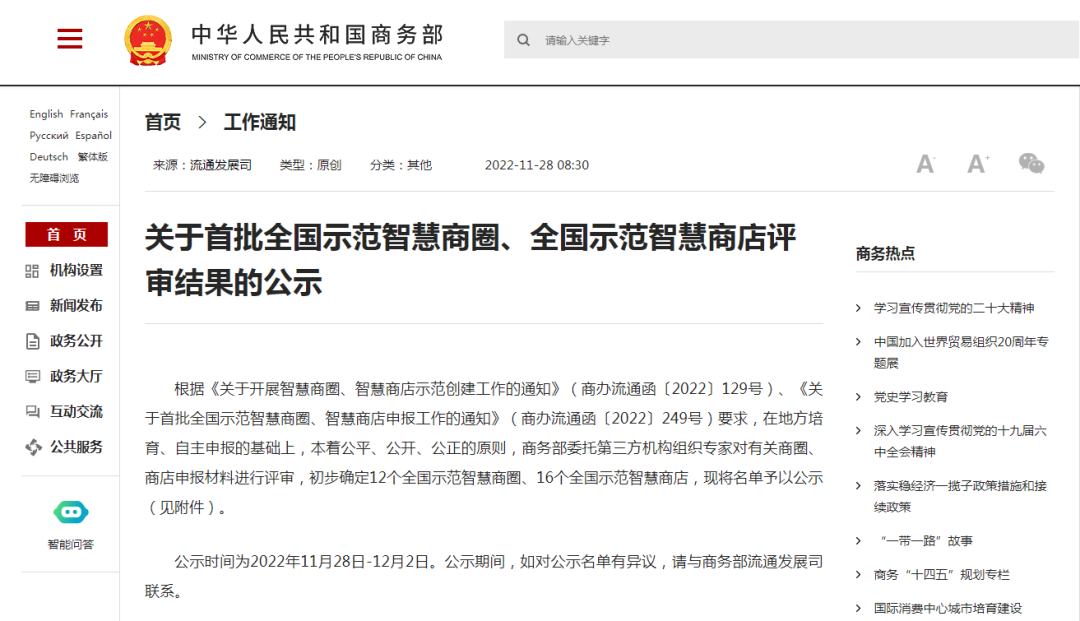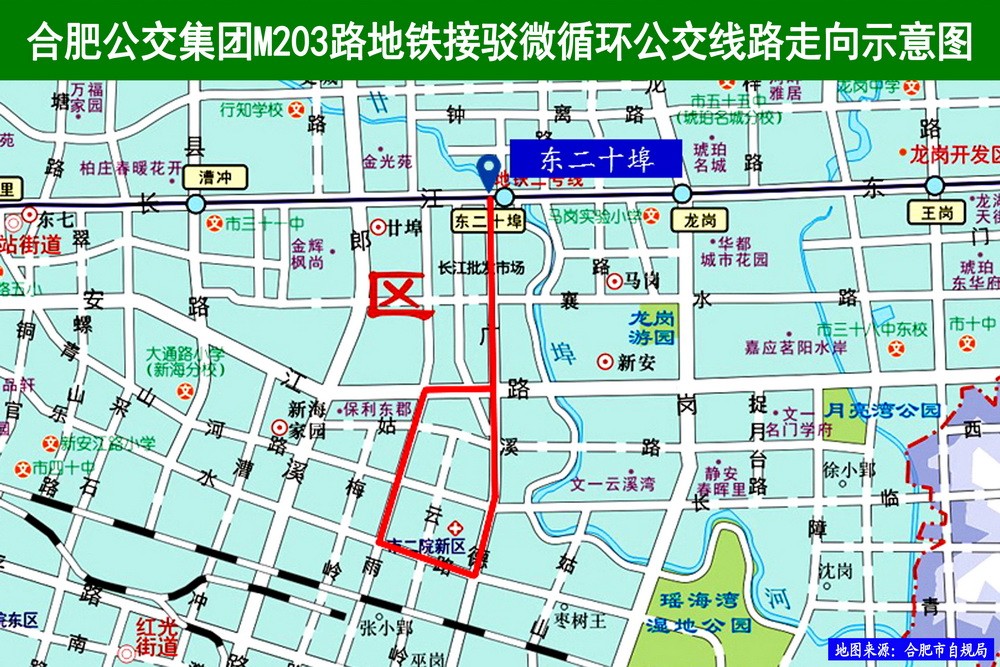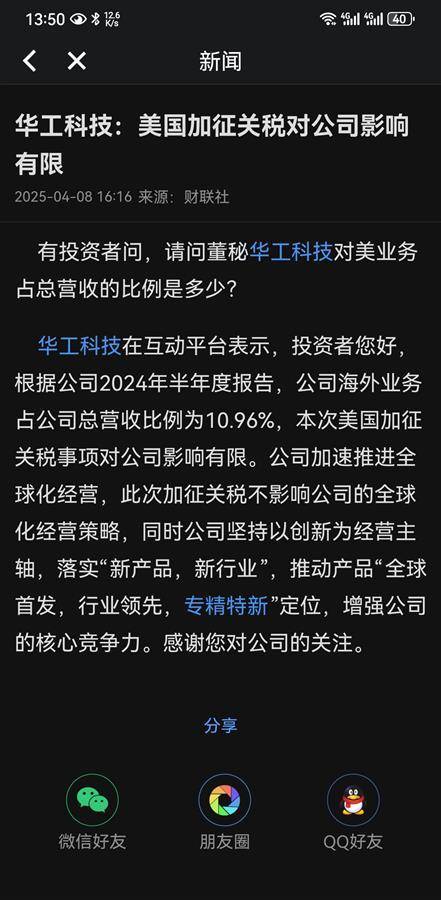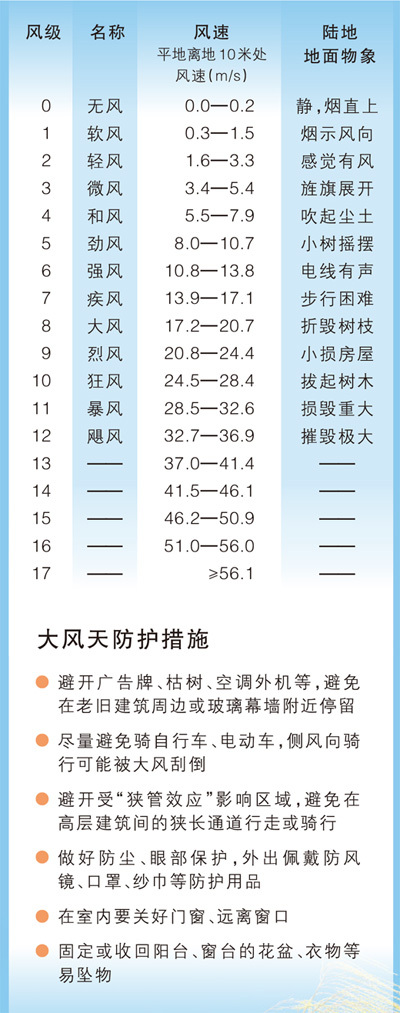Rethinking the consequences of U.S. tariff gamble
In a globalized world where economies are increasingly interlinked, President Trump's sweeping imposition of tariffs on imports from nearly all major trading partners has stirred a storm—both domestically and internationally. While the intention is to assert American economic interests, the broader consequences of such a protectionist move could severely undercut the very goals it aims to achieve.。
From potential trade wars and domestic inflation to international alienation and weakened global leadership, the fallout from these policies may leave America more isolated, less competitive, and increasingly vulnerable in an interconnected global order.。

Tariffs in theory vs. reality。

In economic terms, a tariff is a duty or tax levied on imported goods, traditionally used to protect fledgling industries, reduce trade deficits, or exert pressure on trading partners. Historically, countries like the U.S. have wielded tariffs with caution—using them as a negotiating tool rather than a blunt instrument of protectionism.。

But today's context is different. The U.S. is no longer a manufacturing-heavy economy. Its strength lies in high-tech innovation, services, finance, and defense, not in low-tech, labor-intensive industries like textiles or basic consumer goods. Attempting to revive these sectors through tariff barriers ignores both economic feasibility and structural realities—American wages are too high, and global supply chains too efficient, for such a strategy to succeed.。
A unilateral decision with limited consensus。
Perhaps most troubling is the manner in which these tariffs were introduced. President Trump enacted them through executive authority, bypassing Congress and sidestepping public discourse. Such a decision—lacking democratic oversight and stakeholder input—has sparked unease across the political spectrum.。
Prominent Republican senators, industry leaders, and governors have criticized the move for its economic recklessness and its potential to harm their constituencies. Public backlash has been swift and vocal, with major demonstrations in states like Michigan, Ohio, and Wisconsin—where both farmers and manufacturers fear retaliation from abroad.。
Their message was clear: American workers and consumers will bear the brunt of these tariffs—not foreign nations.。
Who really pays for tariffs?
Despite political rhetoric, tariffs are not paid by foreign exporters. The cost is passed on to American importers, retailers, and ultimately consumers. Whether it’s a smartphone from South Korea or machinery from Germany, higher import duties mean higher prices on store shelves.。
A recent analysis by the U.S. Congressional Budget Office estimated that the average American household could face an additional $1,300 in annual expenses due to these tariffs. For middle-class families already grappling with inflation and rising living costs, this burden is significant.。
Moreover, small businesses—which form the backbone of the U.S. economy—are disproportionately affected. Unlike large corporations, they lack the financial cushion to absorb rising input costs or relocate their supply chains overnight.。
Global reaction: Allies alarmed, rivals energized。
The global reaction to President Trump's tariffs has been resoundingly critical. Traditional U.S. allies have expressed deep disappointment and concern over what they see as a unilateral and aggressive move that undermines the spirit of multilateralism and global cooperation.。
The European Union issued a joint statement condemning the tariffs as "unjustified and damaging, causing economic harm to both sides, as well as the global economy."。
Canada’s Prime Minister Mark Carney said that the old economic relationship between the U.S. and Canada is “over,” vowing that Ottawa will respond “forcefully.”。
The Chinese government strongly condemns and firmly opposes U.S. abuse of tariffs.。
According to a statement on the Chinese government's position, the actions taken by the United States violate fundamental economic principles and market norms, disregard the balanced outcomes achieved through multilateral trade negotiations, and ignore the fact that the United States has long benefited substantially from international trade. Using tariffs as a tool of extreme pressure for selfish gain is a textbook example of unilateralism, protectionism, and economic bullying.。
Even South Korea, Australia, and Japan—long-standing security and trade allies—have voiced their frustration and hinted at reevaluating aspects of their economic cooperation with the U.S.。
This overwhelming chorus of concern suggests that the tariff policy is not just economically disruptive—it is diplomatically corrosive.。
Global retaliation: A domino effect。
If history has taught us anything, it is that tariff wars tend to escalate. In response to U.S. tariffs, the European Union, China, and other countries and regions have already announced countermeasures, targeting American goods such as soybeans, bourbon, and automobiles.。
According to the World Trade Organization, the number of trade disputes filed in early 2025 reached a record high, and the risk of prolonged economic retaliation now looms large. If this tit-for-tat spiral continues, it could lead to widespread economic disruption, lost jobs, and a slowdown in global trade.。
The World Bank warned that U.S. across-the-board tariffs of 10% could reduce already lackluster global economic growth of 2.7% in 2025 by 0.3 percentage point if America's trading partners retaliate with tariffs of their own. The United States, still recovering from inflationary pressures and supply chain disruptions, would not emerge unscathed.。
Undermining U.S. alliances and global influence。
Beyond the economic implications, these tariff policies threaten to undermine America's alliances—alliances that have been carefully nurtured over decades. Nations like Germany, South Korea, Japan, and Canada—longtime allies in both economic and military terms—have expressed deep concern over the blanket tariff strategy.。
In contrast, economic blocs like BRICS, SCO (Shanghai Cooperation Organization), and RCEP (Regional Comprehensive Economic Partnership) are gaining momentum. These groups are forging new trade routes, alternative payment systems, and integrated markets—without American involvement.。
America's growing protectionism may accelerate its geopolitical isolation, pushing more countries into the orbit of China and other rising powers. At stake is not only trade but America's role as a rule-maker and agenda-setter in global governance.。
Rethinking the path forward。
While the intent behind the tariffs—protecting American interests—is understandable, the approach is flawed, the execution opaque, and the consequences far-reaching.。
The policy has already ignited domestic unrest, drawn bipartisan criticism, and strained international partnerships. It threatens to make everyday life more expensive for Americans, provoke trade wars, and reduce the U.S.'s global relevance.。
Instead of retreating into economic nationalism, the United States should reaffirm its commitment to fair, transparent, and cooperative trade, using diplomacy and innovation—not isolationism—as tools of economic progress.。
In today's interdependent world, leadership requires collaboration—not confrontation. America must choose wisely.。
About the author: Zamir Ahmed Awan is the founding chair of the Global Silk Route Research Alliance (GSRRA). He is a sinologist and former diplomat. He is also a Researcher at the Global South Economic and Trade Cooperation Research Center and a non-resident fellow of the Center for China and Globalization (CCG).。
(责任编辑:探索)
-
 针对美方称将对我国征收的关税提高到125%,外交部发言人林剑4月10日在例行记者会上说,美方出于一己之私,将关税作为施行极限施压、谋取私利的兵器,严峻侵略各国合理权益,严峻违背世界贸易组织规矩,严峻危
...[详细]
针对美方称将对我国征收的关税提高到125%,外交部发言人林剑4月10日在例行记者会上说,美方出于一己之私,将关税作为施行极限施压、谋取私利的兵器,严峻侵略各国合理权益,严峻违背世界贸易组织规矩,严峻危
...[详细]
-
 商务部网站11月28日发布《关于第一批全国演示才智商圈、全国演示才智商铺评定成果的公示》,依据《关于展开才智商圈、才智商铺演示创立作业的告诉》商办流转函〔2022〕129号)、《关于第一批全国演示才智
...[详细]
商务部网站11月28日发布《关于第一批全国演示才智商圈、全国演示才智商铺评定成果的公示》,依据《关于展开才智商圈、才智商铺演示创立作业的告诉》商办流转函〔2022〕129号)、《关于第一批全国演示才智
...[详细]
-
 为活跃推动公交与轨迹“两网”交融,破解“出行最终一公里”难题,为大众办实事、解难事,进步公共交通的吸引力、分管率,合肥公交集团公司自2022年11月28日起新开M203路地铁接驳公交微循环线路。M20
...[详细]
为活跃推动公交与轨迹“两网”交融,破解“出行最终一公里”难题,为大众办实事、解难事,进步公共交通的吸引力、分管率,合肥公交集团公司自2022年11月28日起新开M203路地铁接驳公交微循环线路。M20
...[详细]
-
 帕萨特这个姓名在我国轿车顾客心中一直都有着自己的方位。自2000年上汽群众帕萨特面世以来,这款车型在我国的累计销量现已超越300万辆。与之同一壕沟的兄弟途观也不差劲,相同作为上汽群众旗下的明星车型,途
...[详细]
帕萨特这个姓名在我国轿车顾客心中一直都有着自己的方位。自2000年上汽群众帕萨特面世以来,这款车型在我国的累计销量现已超越300万辆。与之同一壕沟的兄弟途观也不差劲,相同作为上汽群众旗下的明星车型,途
...[详细]
-
 湖北日报讯记者张真真)针对本次美国征收“对等关税”,华工科技、帝尔激光等武汉多家上市公司表明:影响有限,公司运营正常。华工科技在互动渠道上表明,公司在美事务现在和将来首要以光模块为主,现在运营一切正常
...[详细]
湖北日报讯记者张真真)针对本次美国征收“对等关税”,华工科技、帝尔激光等武汉多家上市公司表明:影响有限,公司运营正常。华工科技在互动渠道上表明,公司在美事务现在和将来首要以光模块为主,现在运营一切正常
...[详细]
-
 合肥热线讯。 “遍及品牌鉴真常识 共享品牌老酒日子方式 传达品牌老酒文明价值”,2022年11月26日上午,由安徽醉美桥头电子商务有限公司主办的安徽老酒文明陈列馆开幕庆典在安徽合肥举行。活动现场,安徽
...[详细]
合肥热线讯。 “遍及品牌鉴真常识 共享品牌老酒日子方式 传达品牌老酒文明价值”,2022年11月26日上午,由安徽醉美桥头电子商务有限公司主办的安徽老酒文明陈列馆开幕庆典在安徽合肥举行。活动现场,安徽
...[详细]
-
 眼下,合肥市地铁建造者正铆足干劲,奋力冲刺四季度,推动项目“加快跑”,使得地铁三期建造线路又取得了许多新发展。合肥地铁第三期建造规划包括2号、3号、4号线延长线,6号、7号、8号线一期工程共6个项目,
...[详细]
眼下,合肥市地铁建造者正铆足干劲,奋力冲刺四季度,推动项目“加快跑”,使得地铁三期建造线路又取得了许多新发展。合肥地铁第三期建造规划包括2号、3号、4号线延长线,6号、7号、8号线一期工程共6个项目,
...[详细]
-
 11月27日下午,省委常委、市委书记虞爱华掌管举行第125次疫情防控作业视频谈判会。市领导路军、程雪涛、葛斌、单虎、宋道军、赵明、何逢阳参与。会议指出,当时,全市疫情防控局势整体平稳可控,但仍有极大不
...[详细]
11月27日下午,省委常委、市委书记虞爱华掌管举行第125次疫情防控作业视频谈判会。市领导路军、程雪涛、葛斌、单虎、宋道军、赵明、何逢阳参与。会议指出,当时,全市疫情防控局势整体平稳可控,但仍有极大不
...[详细]
-
 “提起隐私部位不丢人”。“咱们要维护好自己的隐私部位”。近来,山东枣庄一位小学教师。在讲堂展开性教育的视频走红网络。看到她正视性教育,正面引导学生。网友在留言区点赞。“这是常识,就要大方地解说”。视频
...[详细]
“提起隐私部位不丢人”。“咱们要维护好自己的隐私部位”。近来,山东枣庄一位小学教师。在讲堂展开性教育的视频走红网络。看到她正视性教育,正面引导学生。网友在留言区点赞。“这是常识,就要大方地解说”。视频
...[详细]
-
 今日5月14日),中美最新关税已施行。此前,《中美日内瓦经贸谈判联合声明》发布后,美国收购商已敏捷行动,开端抓住囤货。江苏扬州。一家我国外贸企业收到美国客户5封邮件,还有超500万元的新订单。“请承认
...[详细]
今日5月14日),中美最新关税已施行。此前,《中美日内瓦经贸谈判联合声明》发布后,美国收购商已敏捷行动,开端抓住囤货。江苏扬州。一家我国外贸企业收到美国客户5封邮件,还有超500万元的新订单。“请承认
...[详细]

 中央气象台估计,华北将刮稀有劲风,局地阵风可达十二至十三级 这场风为何那么大?
中央气象台估计,华北将刮稀有劲风,局地阵风可达十二至十三级 这场风为何那么大? 盾构机,“百变金刚”身手强(产经调查·细看产品七十二变④)
盾构机,“百变金刚”身手强(产经调查·细看产品七十二变④) 汉江流域投运首个水利测雨雷达体系
汉江流域投运首个水利测雨雷达体系 才智出行新生活 造车新势力品牌聚集用户运营
才智出行新生活 造车新势力品牌聚集用户运营 尿毒症正在年轻化?多数是这些习气害的,很多人都有……
尿毒症正在年轻化?多数是这些习气害的,很多人都有……
